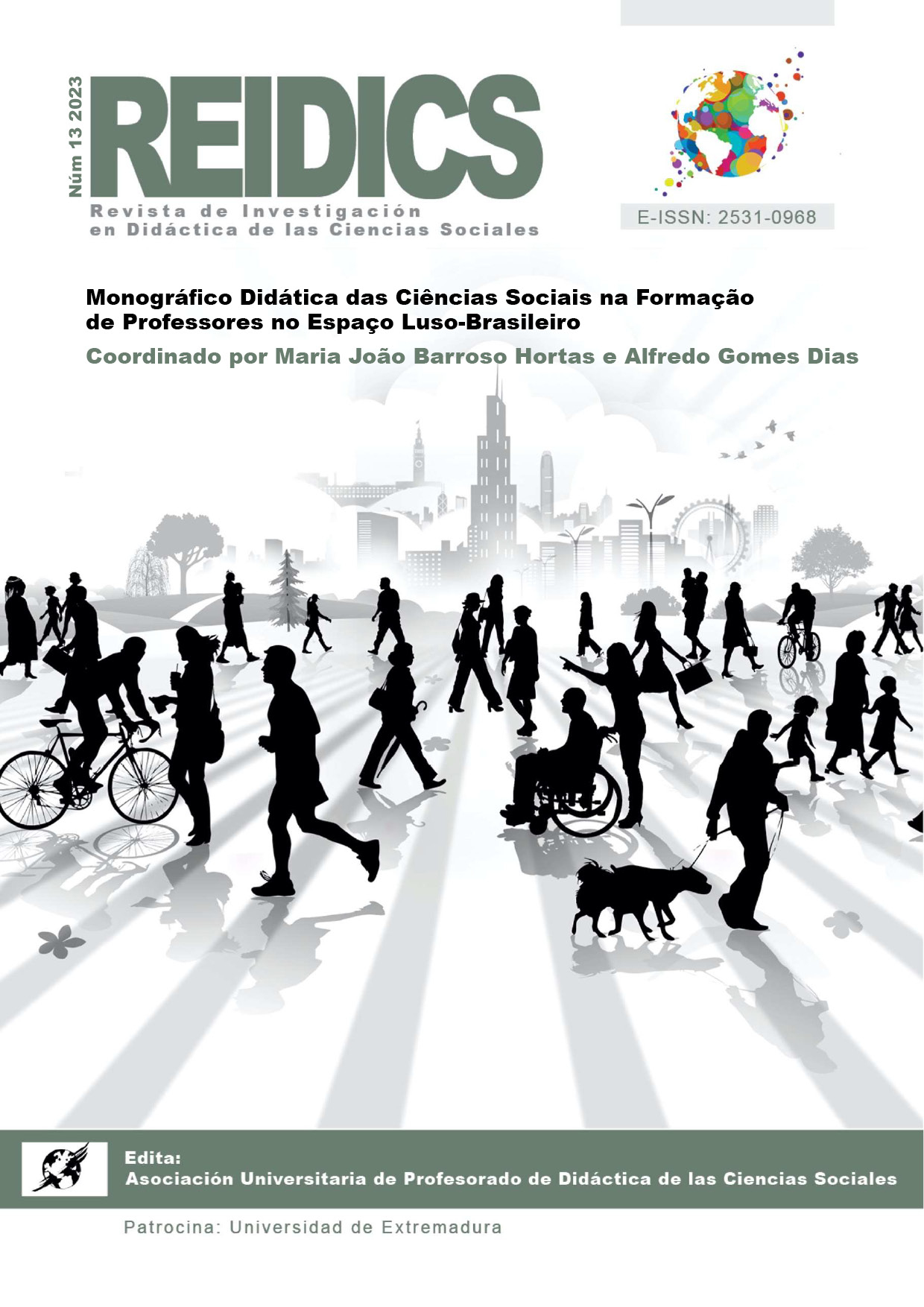Stories of indignation: The narrative approach as a methodology for a radical political formation
DOI:
https://doi.org/10.17398/2531-0968.13.11Keywords:
political formation; radical democratic education; political emotions, outrage, narrative approachAbstract
This project is situated in a critical approach to political formation that highlights the relevance of power relations that go through the constitution of subjectivities. Which implies asking about political expressions beyond the relationship between the individual and the State, including aspects of the daily life of the subjects. The research is positioned in a perspective of radical democratic education that highlights the importance of political emotions that, if they are excluded in favor of those limited by parameters centered on reason, can lead to an abandonment of the possibilities of political articulation.
According to this perspective, the research explores the possibilities of the narrative approach as a methodological proposal to analyze political emotions. This approach seeks to understand the meanings put into play by the subjects throughout their formative experiences, exploring them through the stories they elaborate on relevant events of their life experience.
Through exercises of narrative construction with students of basic secondary education in a public school in Bogotá, Colombia, its meanings have been explored around a political emotion: outrage. It has been possible to demonstrate that the narrative as a methodological proposal allows us to understand the constructions of political subjectivity of young people, in which experiences are articulated that break with traditional political antinomies such as the micro and macro politics, the private and the public, the State and civil society, or domination versus emancipation.
References
Abero, L. Berardi, L., Caposale, A., García, S. y Rojas, R. (2015). Investigación Educativa: Abriendo puertas al conocimiento. Consejo Latinoamericano de Ciencias Sociales CLACSO.
Bolívar, A. y Segovia, J. (2018). La investigación (auto)biográfica y narrativa en España: principales ámbitos de desarrollo en educación. Revista Brasileira de Pesquisa (Auto)Biográfica, 3(9), 796-813.
Corporación Latinobarómetro. (2021). Informe Latinobarómetro 2021. Corporación Latinobarómetro.
Freedom House. (2021). Freedom in the World 2021: Democracy under siege. Freedom House.
Freire, P. (2014). Pedagogía de la esperanza. Un reencuentro con la pedagogía del oprimido. Siglo XXI.
Giroux, H. (1997). Los profesores como intelectuales. Hacia una pedagogía crítica del aprendizaje. Ediciones Paidós.
Herrera, M., Pinilla, A., Díaz, C. e Infante, R. (2005). La construcción de cultura política en Colombia. Proyectos hegemónicos y resistencias culturales. Universidad Pedagógica Nacional.
Instituto Internacional para la Democracia y la Asistencia Electoral IDEA. (2021). El Estado de la democracia en las Américas 2021. Democracia en tiempos de crisis. Instituto Internacional para la Democracia y la Asistencia Electoral IDEA.
Laclau, E. y Mouffe, C. (2004). Hegemonía y estrategia socialista. Hacia una radicalización de la democracia. Fondo de Cultura Económica.
Latin American Public Opinion Project. (2021). Pulse of Democracy 2021. Vandervilt University.
Mouffe, C. (1999). El retorno de lo político. Comunidad, ciudadanía, pluralismo, democracia radical. Editorial Paidós.
Quintero, M. (2018). Usos de las narrativas, epistemologías y metodologías: Aportes para la investigación. Universidad Distrital Francisco José de Caldas.
Ricoeur, P. (2006). Caminos del reconocimiento. Tres estudios. Fondo de Cultura Económica.
Ricouer, P. (2006). La vida, un relato en busca de narrador. Ágora, Papeles de Filosofía, 25(2), 9-22.
Rivas, J., Prados, E., Leite, A., Cortés, P., Márquez, J., Calvo, P., Martagón, V. y Acuña, M. (2020). Ética, responsabilidad y trabajo colectivo en la investigación narrativa. A prática na Investigação Qualitativa, 5, 139-151.
Ruitenberg, C. (2010). Conflict, Affect and the Political: On Disagreement as Democracy Capacity. Journal of Peace Education and Social Justice , 4(1), 40-55.
Sant, E. (2021). Educación política para una democracia radical. FORUM. Revista Departamento Ciencia Política. , 138-157.
Sant, E., McDonell, J., Pashby, K. y Menendez, D. (2021). Pedagogies of agonistic democracy and citizenship education. Journal of Education, Citizenship and Social Justice, 16(3), 227-244.
The Economist: Intelligence Unit. (2020). Democracy Index 2020. In sickness and in health? The Economist.
Tryggvason, A. (2018). Democratic Education and Agonism. Exploring the Critique from Deliberative Theory. Democracy and Education Journal, 26(1), 1-9.
V-Dem Institute. (2021). Autocratization turns viral. Democracy Report 2021. Universidad de Gothenburg.
Comisión de la Verdad. (25 de Mayo de 2022). Resistencias Trenzadas. Obtenido de Youtube: https://www.youtube.com/watch?v=vyLprS8NjxQ&t=82s
Downloads
Published
Issue
Section
License
Aquellos autores/as que tengan publicaciones con esta revista, aceptan los términos siguientes:
- Los autores/as conservarán sus derechos de autoría y garantizarán a la revista el derecho de primera publicación de su obra, el cual estará simultáneamente sujeto a la Licencia de reconocimiento de Creative Commons 4.0 BY-NC-SA que permite a terceros compartir la obra siempre que se indique su autor y su primera publicación en esta revista.
- Los autores/as podrán adoptar otros acuerdos de licencia no exclusiva de distribución de la versión de la obra publicada (p. ej.: depositarla en un archivo telemático institucional o publicarla en un volumen monográfico) siempre que se indique la publicación inicial en esta revista.
- Se permite y recomienda a los autores/as difundir su obra a través de Internet (p. ej.: en archivos telemáticos institucionales o en su página web) antes y durante el proceso de envío, lo cual puede producir intercambios interesantes y aumentar las citas de la obra publicada. (Véase El efecto del acceso abierto).
- Los autores y autoras han respetado la política de autoría de esta revista.




